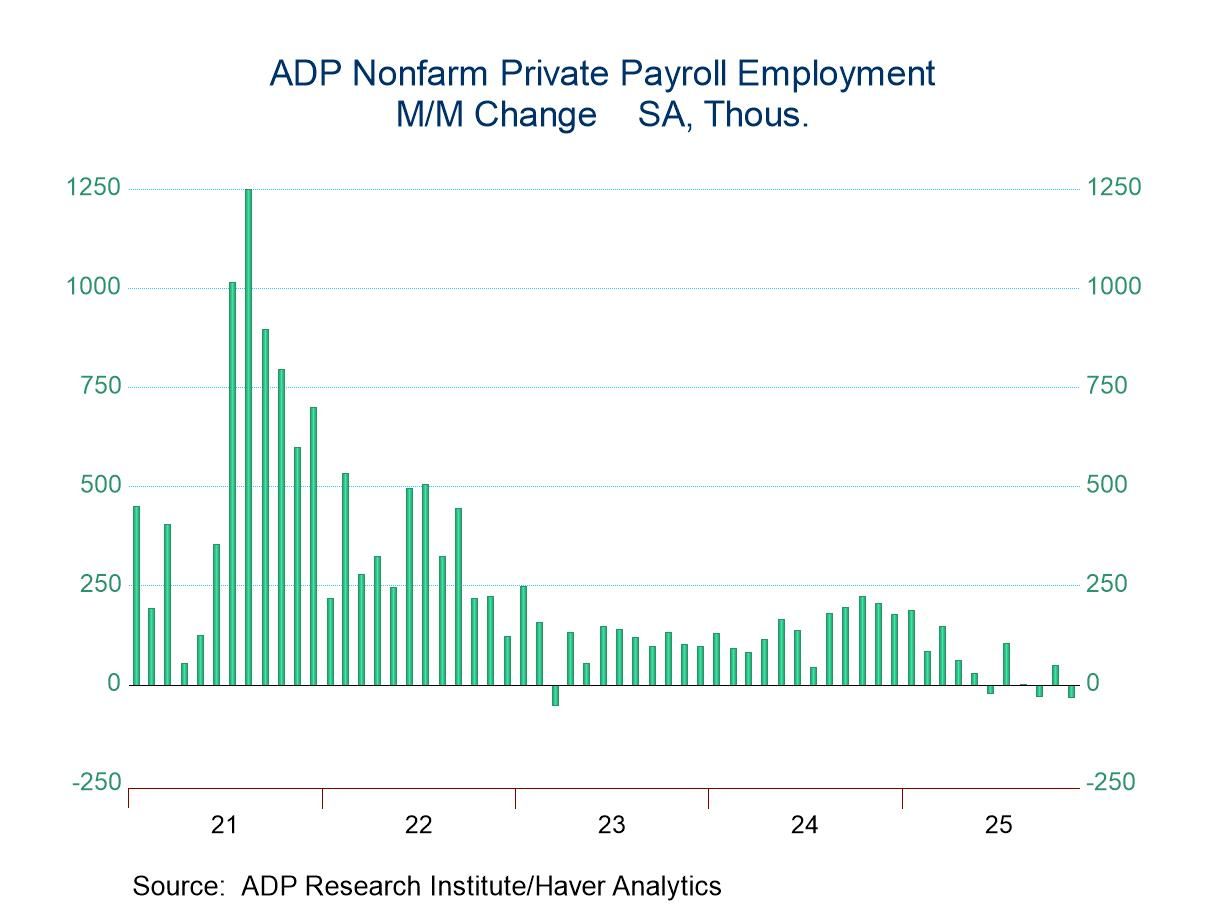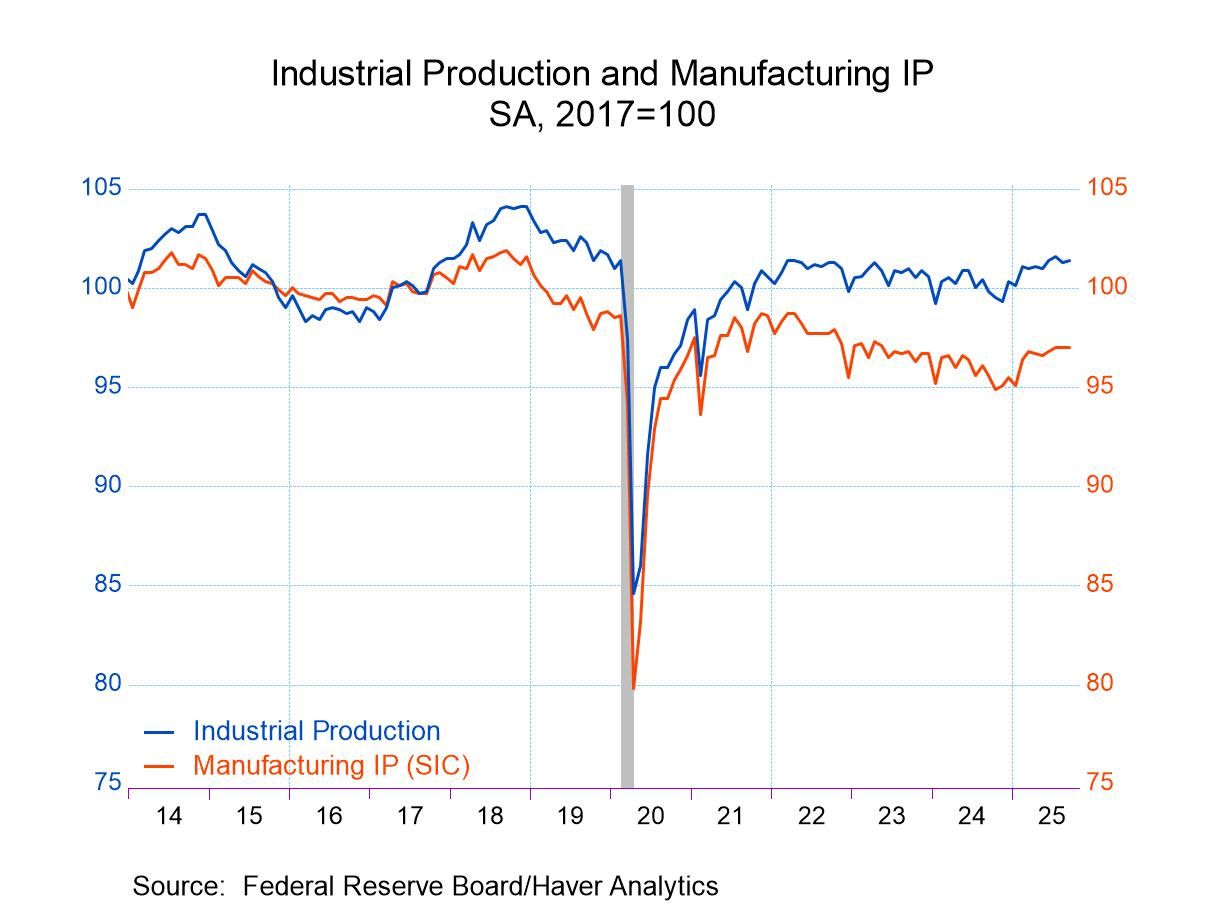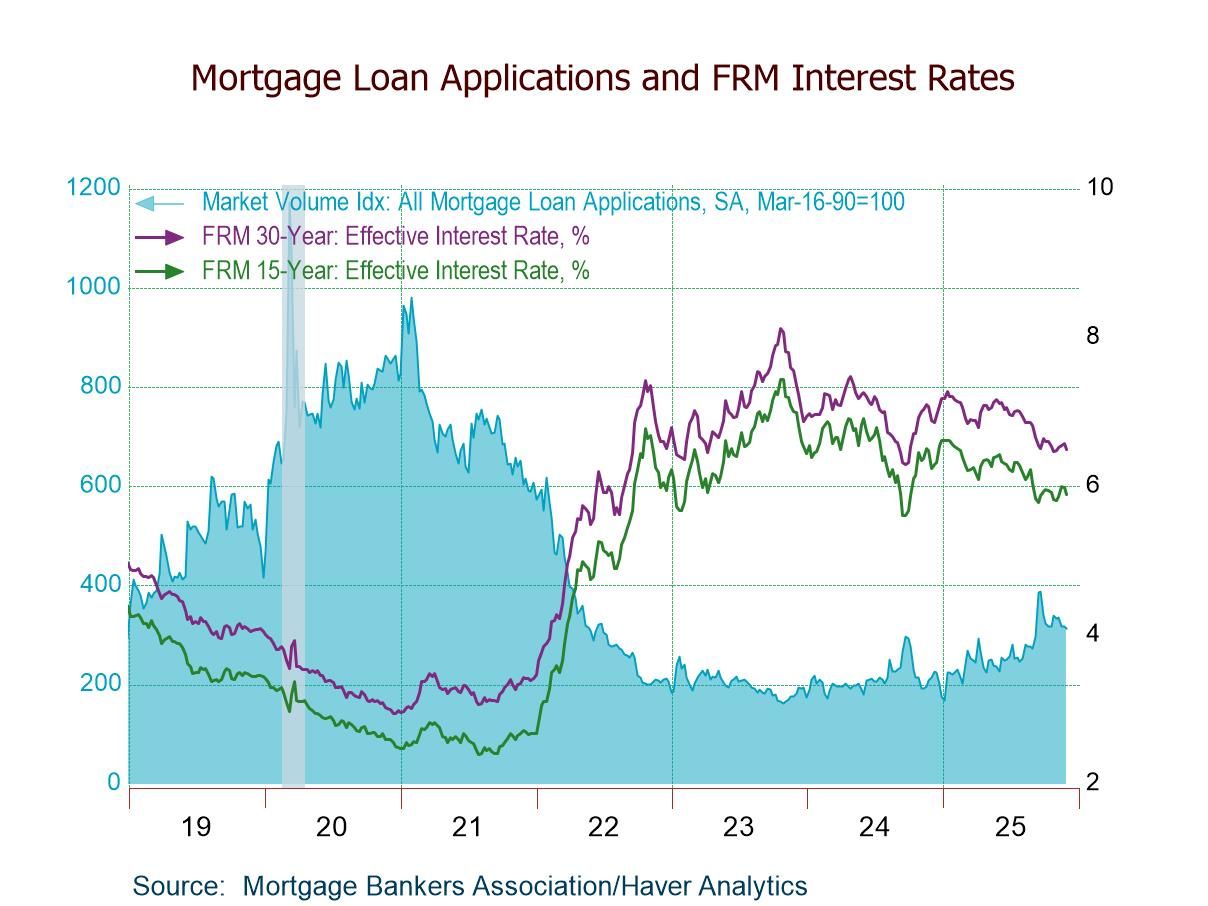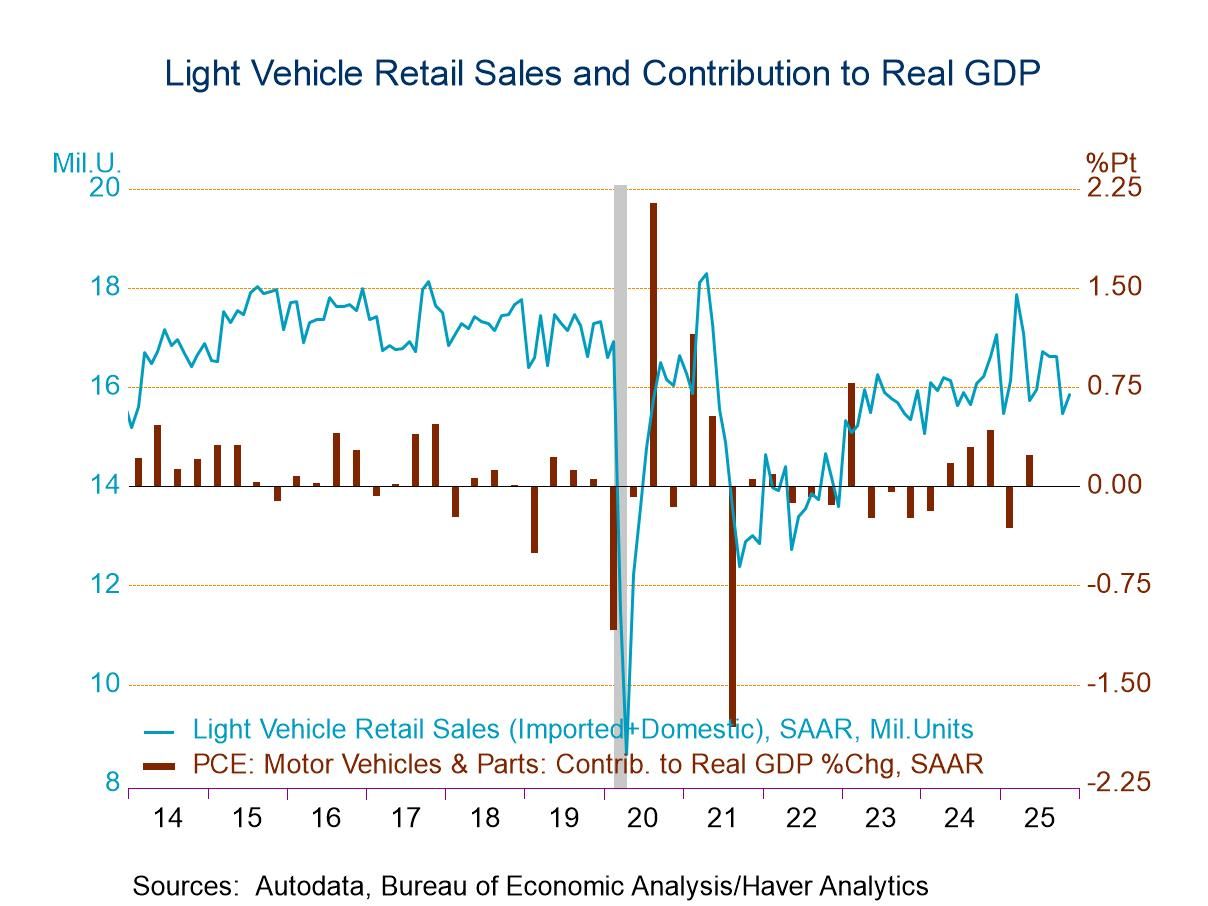 Global| Feb 09 2015
Global| Feb 09 2015U.S. Labor Market Conditions Index Dips M/M but Trends Sideways
by:Tom Moeller
|in:Economy in Brief
Summary
The Labor Market Conditions Index (LMCI) is a tool created by the Federal Reserve Board to assess changes in labor market conditions. It draws on 19 indicators, from broad measures like the unemployment rate to narrower indicators [...]
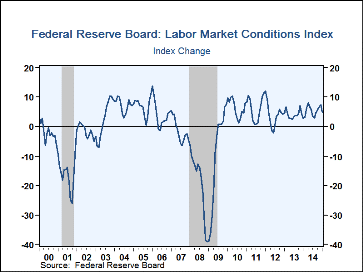 The Labor Market Conditions Index (LMCI) is a tool created by the Federal
Reserve Board to assess changes in labor market conditions. It draws on
19 indicators, from broad measures like the unemployment rate to
narrower indicators like surveys of business hiring plans. It aims to
produce a single measure to gauge whether labor markets, on the whole,
are improving or not. Haver Analytics presents only the change in
the index, rather than its level. Because the common components of the
trends are slow- moving in our specification, short-run changes in the
index are informative about movements in overall labor market conditions.
The Labor Market Conditions Index (LMCI) is a tool created by the Federal
Reserve Board to assess changes in labor market conditions. It draws on
19 indicators, from broad measures like the unemployment rate to
narrower indicators like surveys of business hiring plans. It aims to
produce a single measure to gauge whether labor markets, on the whole,
are improving or not. Haver Analytics presents only the change in
the index, rather than its level. Because the common components of the
trends are slow- moving in our specification, short-run changes in the
index are informative about movements in overall labor market conditions.
The change in the LMCI dipped to 4.9 during January from 7.3 in December. The m/m fall reflected the lessened gain in nonfarm payrolls, the uptick in the unemployment rate and the stability of the insured unemployment rate offsetting improvement in other indicators such as the change in average hourly earnings and the rise in the labor force participation rate. Despite the latest decline, the index continued to suggest steady improvement in the labor market as it has trended sideways.
| Labor Market Conditions Index | Jan | Dec | Nov | Y/Y | 2014 | 2013 | 2012 |
|---|---|---|---|---|---|---|---|
| Total Index M/M Change | 4.9 | 7.3 | 6.7 | 2.7 | 4.3 | 4.2 | 3.9 |
Tom Moeller
AuthorMore in Author Profile »Prior to joining Haver Analytics in 2000, Mr. Moeller worked as the Economist at Chancellor Capital Management from 1985 to 1999. There, he developed comprehensive economic forecasts and interpreted economic data for equity and fixed income portfolio managers. Also at Chancellor, Mr. Moeller worked as an equity analyst and was responsible for researching and rating companies in the economically sensitive automobile and housing industries for investment in Chancellor’s equity portfolio. Prior to joining Chancellor, Mr. Moeller was an Economist at Citibank from 1979 to 1984. He also analyzed pricing behavior in the metals industry for the Council on Wage and Price Stability in Washington, D.C. In 1999, Mr. Moeller received the award for most accurate forecast from the Forecasters' Club of New York. From 1990 to 1992 he was President of the New York Association for Business Economists. Mr. Moeller earned an M.B.A. in Finance from Fordham University, where he graduated in 1987. He holds a Bachelor of Arts in Economics from George Washington University.



